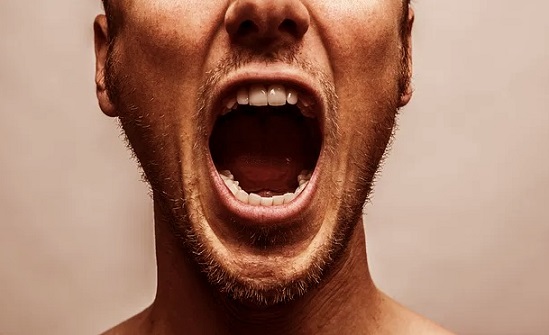Study Finds That COVID-19 Damages Salivary Glands, Causing Dry Mouth Conditions in Many!
Nikhil Prasad Fact checked by:Thailand Medical News Team Apr 02, 2025 1 day ago
Medical News: Dry Mouth May Be a Silent But Distressing Symptom of -19 Infections
As the world continues to explore the wide-reaching effects of SARS-CoV-2, scientists are uncovering surprising connections between the virus and seemingly unrelated health issues. One such symptom gaining attention is xerostomia, more commonly known as dry mouth. A newly published systematic review confirms that a staggering number of individuals infected with COVID-19 have reported experiencing moderate to severe oral dryness.
 Study Finds That COVID-19 Damages Salivary Glands, Causing Dry Mouth Conditions in Many!
Study Finds That COVID-19 Damages Salivary Glands, Causing Dry Mouth Conditions in Many!
The study, conducted by Zahra Khoshkalam from the Dental School at Hamadan University of Medical Sciences, Sepideh Soheilifar from a private dental practice in Hamadan, and Mohammad Hossein Khoshkalam from the University of Nursing and Midwifery of Medical Sciences in Iran, set out to investigate the relationship between SARS-CoV-2 and salivary gland function. This
Medical News report highlights their findings, which reveal a potential new clinical complication in COVID-19 cases that could impact millions globally.
How the Study Was Conducted
The researchers followed rigorous protocols in conducting their systematic review. Adhering to the PRISMA guidelines, they sifted through studies across four major databases - PubMed, Scopus, Google Scholar, and Web of Science - between December 2019 and May 2024. The goal was to identify reports linking dry mouth symptoms directly to COVID-19. After reviewing 753 initial studies, they narrowed the results down to 32 articles that met strict inclusion criteria, such as a confirmed PCR test for COVID-19 and a clinical diagnosis of xerostomia using either questionnaires, saliva collection kits, or visual analog scales.
Notably, the authors excluded any studies that involved animals, lacked PCR confirmation of COVID-19, or failed to mention xerostomia or salivary dysfunction. The final collection included 18 review articles and 14 observational studies, such as case series and cross-sectional studies.
What the Researchers Discovered
The most striking revelation from the systematic review was the extremely wide and surprisingly high prevalence of xerostomia in COVID-19 patients, ranging from 30 percent to a staggering 98.4 percent in some reports. This symptom is not only common but may also be a sign of deeper underlying issues such as salivary gland inflammation, tissue damage, or nerve dysfunction caused directly by the virus.
Multiple mechanisms were proposed to explain this symptom:
-
Salivary Gland Infection: SARS-CoV-2 appears to target ACE2 receptors, which are abundant in the epithelial cells of the salivary glands. Once inside these glands, the virus can cause acute inflammation (sialadenitis), impair function, and even lead to cell destruction.
-
Neurological Damage: The virus may affect peripheral nerves that control salivary secretion, contributing to r
educed saliva production.
-
Zinc Deficiency: Many COVID-19 patients exhibit low zinc levels, which is a known factor in impaired saliva production.
-
Mouth Breathing Due to Nasal Congestion: A common symptom of COVID-19, nasal congestion often forces patients to breathe through their mouths, accelerating moisture loss and aggravating dry mouth symptoms.
These physiological effects were compounded in some cases by the medications used to treat COVID-19. Drugs that suppress saliva secretion to reduce the risk of virus transmission through droplets may inadvertently worsen xerostomia.
Other Associated Symptoms and Observations
Besides dry mouth, the review also noted a consistent occurrence of taste and smell disorders, oral ulcers, mucosal inflammation, dry eyes, and even joint pain and halitosis among COVID-19 patients. Interestingly, some studies observed opposite reactions in certain groups - such as hypersalivation in tracheostomized patients, where medications were later used to reduce excessive saliva.
Clinical reports also revealed a strong link between xerostomia and discomfort during hospitalization. In some cases, the symptom persisted even after recovery, raising concerns about potential long-term damage to salivary gland function.
Why This Matters in Patient Care
The findings underscore the importance of recognizing dry mouth as a significant and potentially lingering symptom of COVID-19. Patients experiencing xerostomia are at risk for numerous oral health complications, including increased dental decay, mouth infections, and difficulty swallowing or speaking.
Treatment options such as artificial saliva and medications that stimulate saliva flow were discussed, but the study warns of limitations. Artificial saliva can cause oral irritation with overuse, and pharmacological treatments may come with side effects that complicate recovery.
Conclusions and Future Directions
This comprehensive review clearly demonstrates that xerostomia is a frequent and underreported complication in COVID-19 patients. The extremely high prevalence of this symptom demands greater attention from both clinicians and researchers. Though the exact causal pathway is still under investigation, there is substantial evidence to suggest that both direct viral invasion of the salivary glands and indirect effects such as systemic inflammation, neurological damage, and treatment side effects contribute to this condition.
More longitudinal studies are urgently needed to clarify the long-term impacts of SARS-CoV-2 on oral health and salivary gland function. In the meantime, healthcare providers should actively screen for dry mouth symptoms in COVID-19 patients and provide early interventions to improve comfort and reduce risk of oral complications.
The study findings were published in the peer reviewed journal: Discover Medicine
https://link.springer.com/article/10.1007/s44337-025-00288-8
For the latest COVID-19 News, keep on logging to Thailand
Medical News.
Read Also:
https://www.thailandmedical.news/news/oral-cavity-identified-as-long-term-covid-19-reservoir-that-increases-risk-of-oral-health-issues
https://www.thailandmedical.news/news/u-s-nih-study-finds-that-sars-cov-2-infection-of-the-salivary-glands-causes-weakening-of-antifungal-defenses
https://www.thailandmedical.news/news/sars-cov-2-also-targets-the-submandibular-glands-causing-hyposalivation-and-xerostomia
https://www.thailandmedical.news/articles/coronavirus
https://www.thailandmedical.news/pages/thailand_doctors_listings
